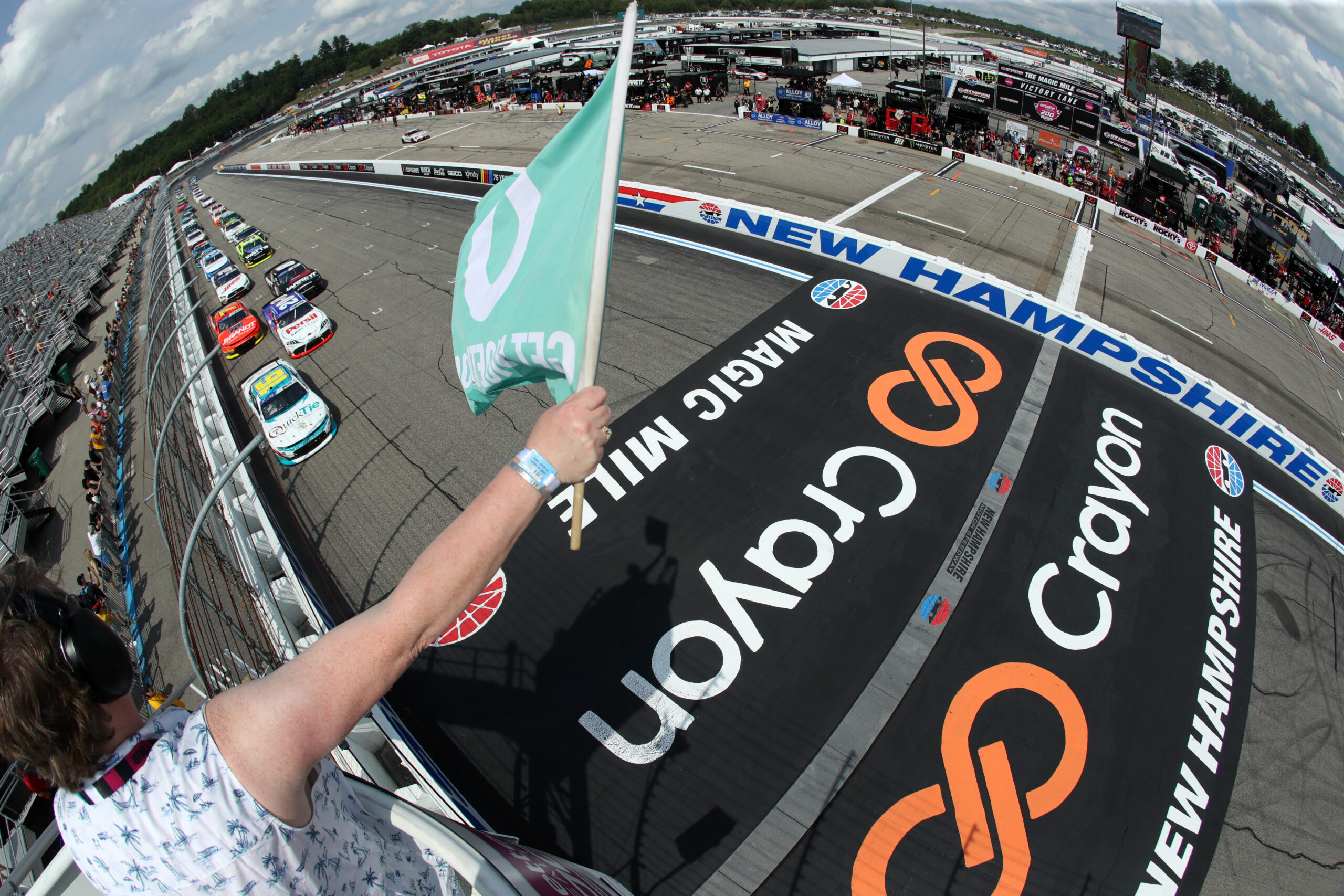Modern-day NASCAR fans are often outspoken about their disdain for NASCAR’s current championship format. The NASCAR Cup Series uses a 10-race stretch of the season to crown their champion, pitting 16 drivers against each other in four rounds, with four drivers being eliminated after the first three rounds of the playoffs, with each round being made up of three races. That leaves four drivers to do battle in what is essentially a winner-take-all championship race.
If you think it doesn’t make sense for a sport that competes for nine months out of the year to crown its champion in three hours, join the club. Many NASCAR fans don’t get it either. On top of being confusing, the playoff system is inherently cloudy when examined under the lens of legitimacy.
Auto-racing is a cruel mistress. It gives and takes without rhyme or reason. A dominant performance can vanish in the blink of an eye, while in the same vein, a mediocre performance can be elevated to victory lane in a heartbeat. Unlike other sports, randomness and luck play far too big a part in racing to crown a champion based on one race, rather than a full season.
But believe it or not, there was a time when the way NASCAR crowned a champion was even more questionable. This is the story of the 1950 NASCAR Cup Series season, the stage for the worst championship battle in NASCAR history.
One look inside the NASCAR Hall of Fame immediately points out a red flag concerning the champion of the 1950 season, Bill Rexford, the only NASCAR Cup Series champion who is yet to be forever enshrined in NASCAR’s home for history. While he did only run 36 races in NASCAR’s premier series, he wasn’t half bad, and with a Cup Series title to his name, it almost seems like his birthright to have a place in the Hall. Further investigation into his championship season, however, proves that there’s a bigger reason that he is yet to sit among racing royalty.
1950 was only the second season of competition for NASCAR’s fledgling Strictly Stock Series. World War Two hero Red Byron had won the first championship in 1949, and Curtis Turner and Lee Petty were both expected to be championship contenders, granted that they could make it to all the races. Back in the day, hardly any drivers were able to make it to every race. It was only when Lee Petty proved that stock car racing was a viable way to earn a living that running all championship events became a reality. Nonetheless, the season began just as it does today, in Daytona Beach Florida. Rather than 500 miles on the 2.5-mile circuit, however, it was the 4.2-mile Daytona Beach and Road Course that played host to the season opener, as the Daytona International Speedway would not debut until 1959.
Harold Kite rode the wind en route to victory in his Lincoln, while Rexford’s title hunt got off to a rather inauspicious start with a 29th-place finish. It would be nearly two months before the Cup Series’ next race at the ill-fated Charlotte Speedway, the site of NASCAR’s first Cup Series race the year prior. Rexford improved to a 13th-place finish but still lacked any race-winning speed. The series took the week off on April 9th before returning to action the following week at the famed Langhorne Speedway.
One of the most dangerous venues in racing at the time, Langhorne crowned Curtis Turner as its victor, the first of two consecutive victories for NASCAR’s chief partygoer. Despite qualifying fifth and leading 18 laps, Rexford would wind up finishing 22nd due to an engine failure. He completed just 84 of the race’s 150 laps. Langhorne ended up being an important race for Rexford’s main championship competitor Lee Petty, who started a streak of nine consecutive top-11 finishes with a fifth-place effort.
Over a month later, the Martinsville Speedway would play host to the fourth round of the Grand National competition. Once again, it was Turner who walked away with the checkered flag, while Rexford notched his best result of the season, finishing 9th, 12 laps down. The next race on the Cup Series circuit was the aptly named Poor Man’s 500 in Canfield, Ohio. This race ended up being the only win of Rexford’s short NASCAR Cup Series career, as he led 80 of the race’s 200 laps, earning $1,400 for his triumph.
The rest of Rexford’s 1950 campaign was fairly mundane. While he did finally find consistency in his finishes, with just one finish outside of the top 15 in the next 11 races, he wasn’t able to make it back to victory lane. To make matters worse, his main rival for the championship, the aforementioned Lee Petty, couldn’t have a bad day. Aside from an issue at Hamburg that left him 27th, Petty finished no worse than seventh over the final six races of the season. It’s no wonder they called him Mr. Consistency.
The final race of the 1950 season was held at the Occoneechee Speedway in Hillsborough, North Carolina. Rexford entered the day with the championship points lead, but a young hotshot from Florida was hot on his tail. Fireball Roberts would eventually have his day in the sun, including a win in the 1962 Daytona 500, but on this day, it was Rexford who would claim the title. Despite a 29th-place points finish, Rexford had earned enough money over the season to claim his first Grand National Championship.
Did something about that last sentence sound odd to you? It wasn’t a mistake. In 1950, the points you earned in NASCAR races directly correlated to the prize money you won. If you won the Southern 500 at Darlington but competed in no other races over the course of the season, you could finish top-10 in the NASCAR Cup Series points standings. If you’re wondering how Johnny Mantz started just three races that year but still finished sixth in points, it all goes back to his lone NASCAR win at Darlington.
If you happen to peruse Racing Reference long enough, however, you’ll notice some mathematical discrepancies. Despite earning over 10,000 dollars in prize money, Johnny Mantz didn’t start anywhere close to enough races to dream of winning the Cup. That makes sense. What doesn’t however, is that Lee Petty easily earned more money than both Fireball Roberts and Bill Rexford, was more consistent than both of them, yet still lost the championship by a staggering 369 points. So, how did this happen? In order to explain, we have to take a walk down a rather crooked memory lane.
Every NASCAR fan knows the name of Bill France. A mechanic originally from Washington DC, he moved down to Florida in the 1930s to escape the harsh winters. After opening up his service station in Daytona Beach, he quickly learned he was a good race car driver and an even better promoter. After a few meetings in a smoke-filled room at the Streamline Hotel, NASCAR was born. But France, like many other racing promoters in those days, ruled with an iron fist. What Big Bill said went, whether or not you agreed with it. One of France’s biggest pet peeves was when his star drivers decided to run races that weren’t sanctioned by NASCAR.
France either didn’t see that it was impossible to make a living running only NASCAR-sanctioned events or ignored this fact altogether. In all honesty, the latter is probably true. This issue later got Curtis Turner banned from NASCAR for life, before France eventually repealed his decision after seeing how popular Turner was with fans. Before Curtis Turner drew the ire of Big Bill, however, it was Lee Petty who would fall victim to France’s displeasure.
With NASCAR taking a three-week break in the summer months of the 1950 season, Lee decided that it was probably in the best interest of his family if he put some food on the table. Rather than do this in what some considered an acceptable way like running illegal moonshine, he instead decided to do it the morally corrupt way, daring to run in stock car races that were unsanctioned by NASCAR. At least, that’s how Bill France saw it.
Petty was just 24 1/2 points out of the championship lead after the race at the Monroe County Fairgrounds on July 2, but when the series returned to action on July 23rd, it was revealed that Petty would have to start from scratch. Bill France stripped Petty of all 809 points he had accumulated through the first eight races of the 1950 season, leaving Petty in a near-impossible spot. However, Petty picked up the pieces and persevered, even winning the last race of the season at Occoneechee.
Without Lee Petty’s points being taken away, he would have easily won the Cup. Instead, he was robbed of being in the same company as Jeff Gordon as a four-time NASCAR champion – all because Bill France couldn’t get out of his own way.
Don’t get me wrong, Bill France is deservedly viewed as one of the most influential figures in NASCAR history. Without him, there is no NASCAR. But that doesn’t mean he was an angel, either. Many drivers from the early days of NASCAR spoke unfavorably of NASCAR’s founder, as it took time before France clearly defined the differences between the conniving criminals at the local short track and the shiny, national stage of the NASCAR Grand National competition.
Despite being buried in the history books, the 1950 NASCAR Cup Series season undoubtedly remains the most questionable championship battle in NASCAR history, and surely has a place among the worst championship battles in all of sports. The NASCAR Playoffs may not always crown the most deserving champion, but they certainly aren’t the worst way to crown a winner that NASCAR’s ever seen.
Count your blessings, NASCAR fans – the grass isn’t always greener on the other side.







